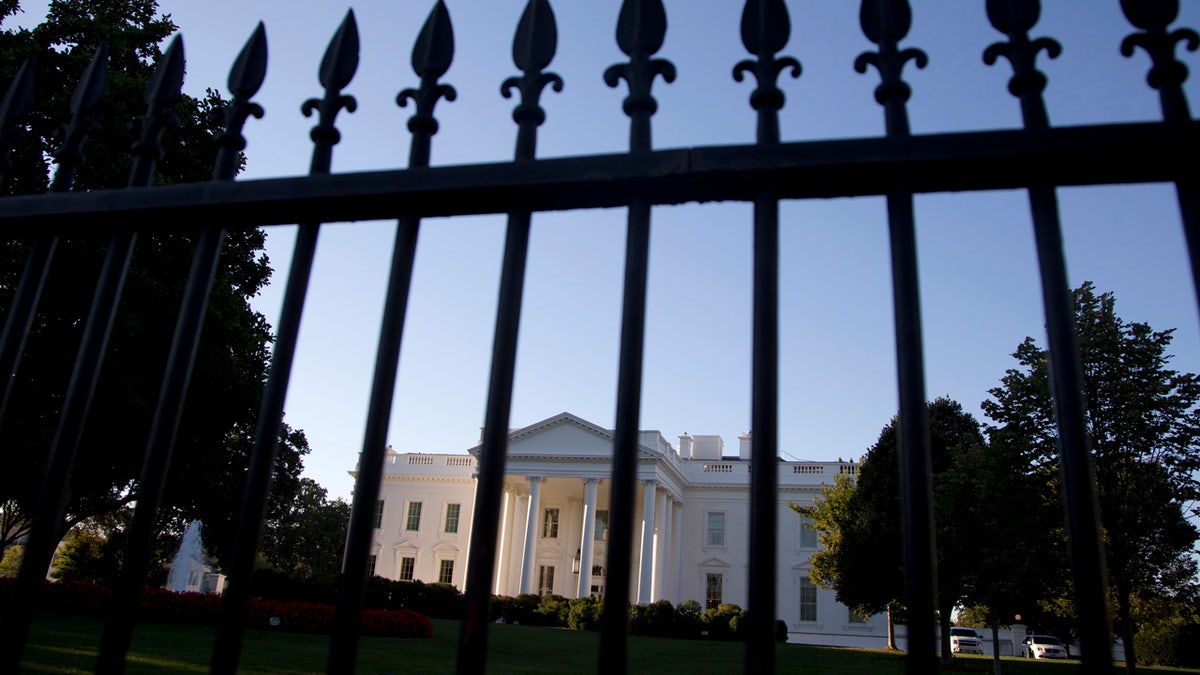
FILE - In this Sept. 22, 2014, file photo, the White House is photographed from Pennsylvania Avenue in Washington. (Copyright 2016 The Associated Press. All rights reserved.)
People want politics to be simple. Left vs. right. Clinton vs. Trump. My side vs. your side. Elect the right guy, and things will be good!
The truth is more complicated.
Influential political philosophies created the mess we live with today, not just a political "left" and "right." There's socialism, conservatism, populism, progressivism, liberalism, scientism (eugenics), Marxism, totalitarianism, nationalism, fascism, Islamo-fascism, Nazism and probably others I missed.
But only two "isms" work well for ordinary people. More on them in a moment.
It's in the interests of politicians and activists to tell us society is divided into two armies, one good and one evil, with crushing defeat for one side just about to happen. When primitive parts of our brains see the world as "us vs. them," we're ready to fight each other.
We may not realize until it's too late that all those ideologies will reduce our freedom and increase the power of politicians.
Matt Kibbe, head of the group Free the People, calls them "the Deadly Isms" in a new series of online videos.
He urges people to stop wasting time worrying about which "ism" is on the left or right and worry more about how all threaten individual liberty.
Stalin was not the opposite of Hitler. Both were mass murderers who censored the press, seized control of industries and murdered innocent people. We don't benefit by choosing between communism and Nazism, or between the milder forms of them that still find adherents today: socialism and fascism.
Whether government gives you orders in the name of the working class or a superior race, it still takes away your right to do as you please.
On the other hand, there is an ideology that does leave us mostly free to do what we please. John Locke called it liberalism, saying that: "The natural liberty of man is to be free from any superior power on earth, and not to be under the will or legislative authority of man."
We need some government to do some things -- keep the peace, for example -- but otherwise, government should mostly leave us alone.
Unfortunately, today's liberals stole Locke's word. Now liberalism means regulating most every detail of individual behavior and dividing people into grievance groups that use government to take each other's money and freedom.
Conservatism claims to love freedom, but its advocates don't mind government starting wars and crushing civil liberties of unpopular groups like drug users, immigrants, gamblers, sex workers and pornographers.
Today, both liberalism and conservatism are guilty of encouraging another ism: corporatism. That's what we get when government doles out special privileges to corporations and people who have more lawyers and lobbyists than you do.
A genuine free market rewards entrepreneurs who serve customers well. A government that hands out farm subsidies, wind-farm tax credits, mortgage deductions, etc., skews the economy in favor of those who are already rich. That's corporatism, or crony capitalism, or "crapitalism," and that's basically what we've got in America now.
Donald Trump practiced crapitalism. That's why cronies like Bill and Hillary Clinton attended his wedding. I don't blame Trump. When government has its fingers all over the economy, developers are smart to get cozy with the political class.
But when Trump ran for president, he didn't call himself a crony capitalist; he said he was a "populist." Sometimes he called it "popularist."
Populists are angry at the establishment.
But populism offers no solution. It leads instead to people following the will of self-appointed leaders who say they share the mob's anger. Bernie Sanders is called a populist, too.
Trump complains about regulations one day (I cheer), but then he complains about free trade the next. He seems to go wherever his moods, and the public's shifting moods, suggest. The anger is constant, but individual liberty suffers.
The only ism that doesn't threaten your freedom is liberalism (as originally defined) -- libertarianism, as we call it now.
Let's take power from the other deadly isms and leave people free.








































